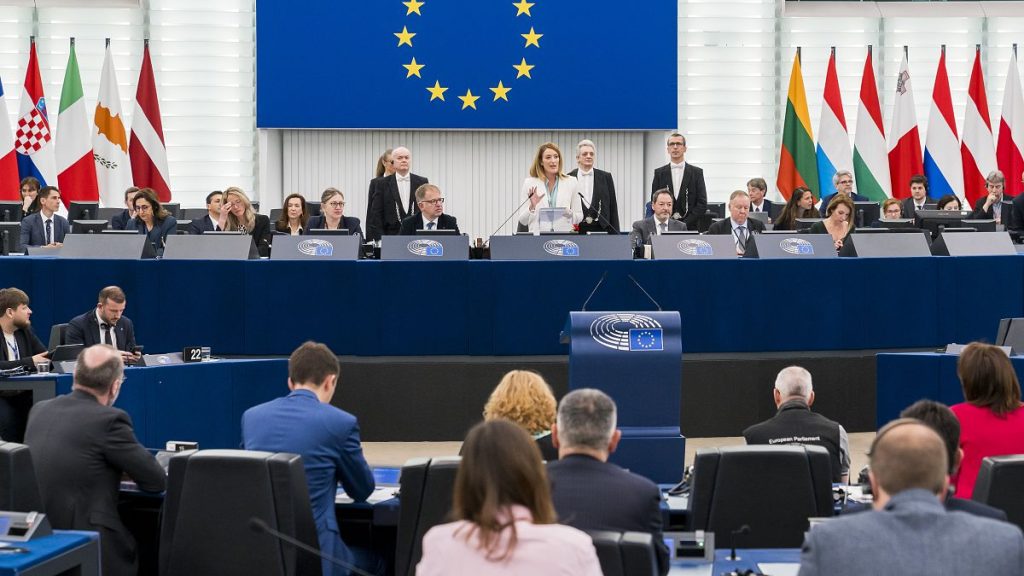The upcoming European Parliament election has highlighted the issue of parental leave for MEPs, as the incoming members will not have official recognition of this right. Despite progress in gender equality within the EU Parliament, with around 40% of women MEPs in 2024 compared to almost 16% in 1979, there are still limitations that prevent parents from fully participating in their roles. Current electoral laws and internal rules do not provide for temporary MEP replacements for parental leave, making it difficult for parents to balance their political duties with their family responsibilities.
MEP Leïla Chaibi, along with 12 other MEPs, called for the EU institution to reform its rules to adapt to modern times in a manifesto signed by Parliament President Roberta Metsola. One of the main requests of the manifesto was the introduction of provisions to enable remote voting, a system that was used during the COVID-19 pandemic. Metsola has been exploring the possibility of extending remote voting to MEPs on maternity, paternity, or parental leave, but technical and procedural challenges remain a barrier to its implementation. Despite these challenges, the Parliament has taken steps to make the reasons for MEPs’ absences transparent by indicating when they are on leave due to family reasons.
For Raquel García Hermida, a candidate for the EU elections in The Netherlands, the lack of parental leave for MEPs may discourage young people, especially women, from running for office. She believes that the inability to balance political activity with family life can deter politicians from starting or expanding their families while serving in office. The lack of parental leave also raises concerns about representation, with an average age of 53 for MEPs in 2024 and only three under 30 years old. Addressing these issues is crucial for promoting diversity and ensuring that the EU Parliament reflects the society it represents.
While the European Parliament argues that MEPs have the freedom to organize their work and do not require formal leave authorization, the absence of official recognition of parental leave remains a barrier to participation. Some member states already provide MEPs with parental leave arrangements, such as Belgium, Germany, Italy, and Sweden, which allow for various periods of maternity leave and facilitate remote voting for absent members. Implementing similar provisions at the EU level could help make the Parliament more inclusive and supportive of younger and family-oriented politicians.
In the next mandate, the European Parliament will continue to explore potential solutions to address the issue of parental leave for MEPs. Despite the challenges associated with implementing remote voting for absent MEPs, efforts are being made to find ways to support parents who are juggling their political responsibilities with family life. For Chaibi, who advocates for greater representation of young people, especially women, in politics, these reforms are essential to encourage a more diverse range of individuals to seek election and participate in EU decision-making processes. Ultimately, recognizing the right to parental leave is not only about making political life more comfortable for MEPs but also about ensuring a fair and inclusive political system that reflects the diversity of European society.


